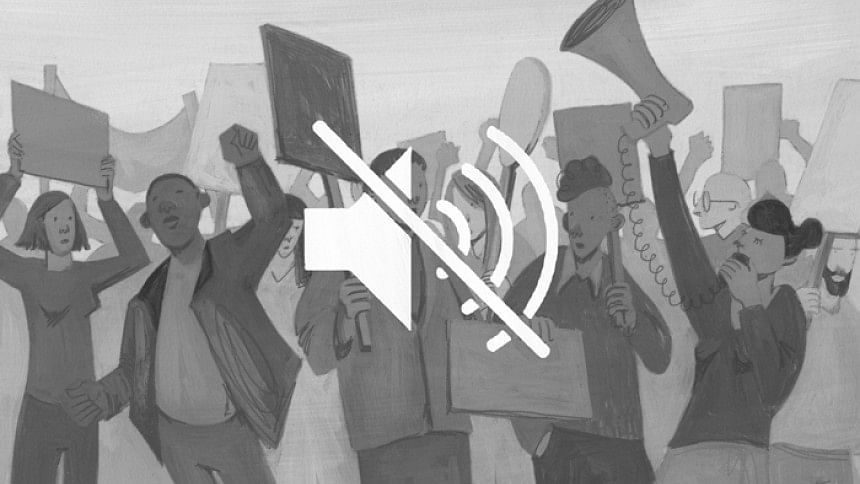Democracy's faltering steps

Today is being observed as Democracy Day in the country, although given the moribund state democracy is in at present, one wonders whether the appellation for the day is justified at this point in time.
It was after nine long years, during which time the military dictator used all the ploys to perpetuate power, and succeeded that long, that the virtual uprising of the people forced Ershad out, and before that ad hoc arrangements were made for the transfer of power and subsequent elections.
Ershad's departure saw the end of khaki rule in the country, a regime that was initiated with the painful events of August 15, 1975. But if it was December 6 that saw the revival of politics and democracy in the country, August 15, 1975 was not really when the abridgement of democracy started. In fact, it started when in its wisdom, the majority party in the Parliament sought to replace multi-party system to one-party political dispensation.
The change in 1991 had rekindled hope for the people of the country who had constantly struggled for the right to choose their leader in a free and fair atmosphere. Hope was rekindled too when we witnessed an unprecedented coalescence of thought and action on the part of all the parties, large and small, albeit split into three large coalitions, that promised to work together for democracy. Commitments were made in writing too in that regard.
But the hopes were soon dashed. Democracy faltered, parliament became dysfunctional. The trend to boycott parliament started with the then opposition AL choosing to abstain from it in support of its demand for a neutral caretaker government (CG).
Regrettably, the issue of CG has been made into a travesty simply because of the contradictory roles that the two parties played during the course of the 20 years since 1991 till the system was done away with in 2012.
When it was first mooted in 1992, CG was something unheard of. The idea of a supra political body assuming temporary power to run an election was a clear manifestation of the underlying distrust between the two major parties. And that has vitiated the political atmosphere in Bangladesh.
Although they had come together against a common "enemy", the khaki rule, there was very little else common that the AL and BNP could see eye to eye on. In 1991, it was as steadfastly opposed by the ruling BNP as it was propagated by its main protagonists the AL, although by all accounts CG was not its brainchild, but that of the Jamaat, which is presently at the throes of extinction. But in spite of having a CG, none of the elections was considered as having been fair and transparent by the one that lost the elections. And the practice of parliament boycott became the norm rather than the exception ever since it was resorted to by the AL in the first tenure of the BNP after the revival of politics in the country.
The charade was completed in 2012 when the Parliament, after an adjudication by the court, did away with the system altogether, although the observations of the court, that two more elections may be organised under the CG was conveniently overlooked. And the irony of it is that this time it was the BNP that steadfastly resisted the idea of doing away with it as the AL was single-minded in seeing its end. The AL sought the legal means to settle a political question that should have been settled by the people.
The rest is history. What we have today by way of a parliament is an apology to the rule of the people. January 15, 2014 was a blot, and the BNP must take the share of its blame for the way things have turned out. Boycotting election is being unfair to the electorate. Surely a political party's main objective is to get to power. Have we ever noticed how often the political leaders use the phrase 'we have come to power … or will go to power" instead of saying "we have assumed power… or will assume power." And it cannot be blamed for the other party's folly. But then the January 15 election involved a lot of arm twisting of Ershad and offering of carrots to some of the more 'power' loving faction of his party, including Begum Ershad.
This is not really the democracy one had hoped for in 1991. Peace prevails but rather eerily. People are being made to eat the opium of development. BNP's type of violent politics have been shunned by the people. But it would be a folly to consider the calm in the political arena as an acquiescence of the people for the current political dispensation.
The writer is Associate Editor, The Daily Star.

 For all latest news, follow The Daily Star's Google News channel.
For all latest news, follow The Daily Star's Google News channel. 






Comments